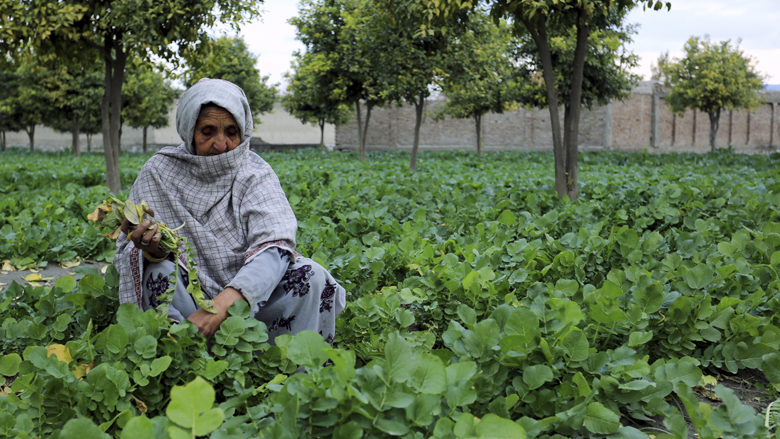Nangarhar Province – The village is wet with rain and the enchanting scent of orange trees fills the air. In a corner of the village, Zahra carefully works her vegetable garden. The mother adjusts her gray scarf and picks the white radish selectively.
. As an illiterate woman, she had always been a housewife and, due to the social stigma of working outdoors among the villagers, she had never tried to start a business or work to support herself. needs of his family.
With no skills to earn an income, Zahra was supported by the National Horticulture and Livestock Project (NHLP) to start a vegetable garden. She received monthly vegetable gardening training, which enabled her to effectively manage her small garden and grow from an unskilled wife to an independent grower, earning to support her family.
Additionally, she receives 15 different kinds of vegetable seeds, such as spinach, radish, cilantro, onions, leeks, tomatoes, and lettuce, from the NHLP. She grows vegetables with the seasons on her own jerib (0.2 hectares) of agricultural land. “Our domestic vegetable needs are met through my gardening,” says Zahra. “I sell extra vegetables at the market and buy other family needs. In total, I earn between 10,000 Afghanis (about $140) and 20,000 Afghanis per season selling my vegetables in the market.
More than a dozen other women also benefit from NHLP activities where Zahra lives. These women grow vegetables on the small plots of land around their homes, which they never thought could bring them an income. Today, these small plots of land provide nutritious food and income.
NHLP operates under the Ministry of Agriculture, Irrigation and Livestock (MAIL), supported by a $190 million grant from the Afghanistan Reconstruction Trust Fund (ARTF). It has the primary objective of increasing productivity and production of horticultural products.
The activities have three components: horticultural production, animal production and health, implementation management and technical assistance.

